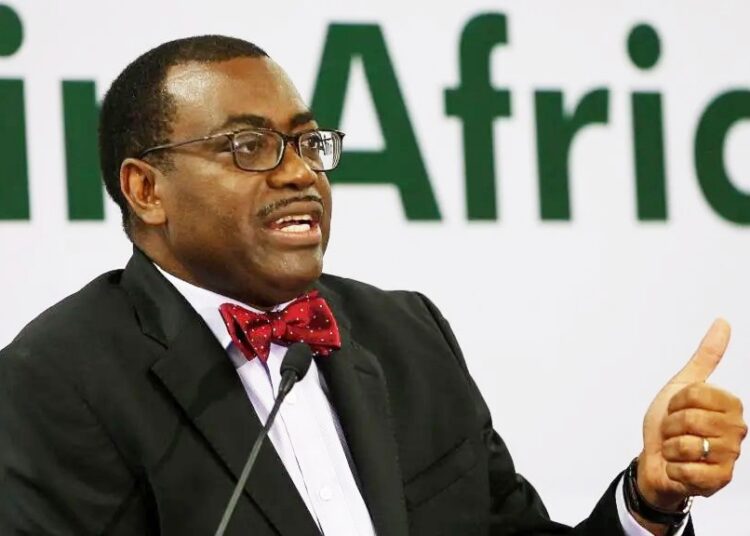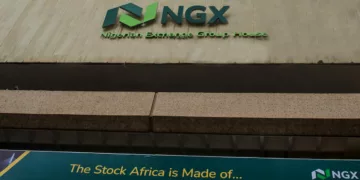The African Development Bank Group (AfDB) has made significant strides in addressing Africa’s energy challenges by committing $12.74 billion in investments between 2016 and 2024, connecting over 25 million Africans to electricity.
This effort is part of the Bank’s “Light Up and Power Africa” initiative, which aims to achieve universal electricity access across the continent.
The bank made this known in a publication titled: 2025 Annual Meetings: ‘Ten years of investments have connected over 25 million people to electricity’, posted on its website on Thursday.
Recall that the president of the African Development Bank Group, Akinwumi Adesina, in September 2016 in New York, one year after his election had said “Africa is just tired of being in the dark … We need to take Africa out of the darkness, period,” highlighting the pressing need for electrification across the continent
According to him, meeting Africa’s energy needs is both a moral and economic imperative. Currently, around 600 million Africans lack electricity, while nearly a billion do not have access to clean cooking facilities.
The AfDB said it has financed the installation of 39,821 km of electricity distribution lines and boosted Africa’s generating capacity, particularly from renewable sources. Initiatives like the Desert to Power and the Sustainable Energy Fund for Africa (SEFA) are key components of the Bank’s strategy to exploit Africa’s vast renewable energy potential. The Desert to Power initiative aims to connect 250 million people to electricity by 2030.
In January 2025, the AfDB and the World Bank launched Mission 300, aiming to connect 300 million people to electricity by 2030, with the AfDB committing to 50 million connections. This collaborative effort underscores the urgency of addressing Africa’s energy deficit and the potential for strategic partnerships to drive sustainable development.
Between 2016 and 2024, AfDB Group committed to making (8.83 billion units of account) of investments to connect more than 25 million Africans to electricity, reducing dependence on oil lamps or straw fires.
According to the bank, “These energy investments exemplify the vision of the 2025 Annual Meetings of the AfDB, which will be held under the banner, “Making Africa’s Capital Work Better for Africa’s Development”, underscoring the strategic mobilisations of the continent’s rich resources.”
It also noted that “Energy is both a major asset and a catalyst for breaking the cycle of poverty.
With vast solar resources, hydroelectric potential, wind corridors, and geothermal reserves, Africa possesses underutilised energy capital capable of transforming economies and reducing reliance on external financing.
By unlocking this potential, the continent can reduce its dependence on external financing and implement well-designed and strategic public policy reforms.
Consequently, the Bank Group’s “Light up and Power Africa” initiative is a cornerstone of its High 5 priorities, with an investment strategy focusing on renewable energy investment.
The Bank’s New Deal for Energy in Africa, which aims to achieve universal access to electricity on the continent by 2030, is driven by innovative financing and partnerships with the public and private sectors to implement ambitious energy projects, playing a key role in Africa’s energy transition and building a more sustainable and inclusive growth model.
“As Adesina has said: “I cannot accept that 600 million Africans still do not have access to electricity. We want to guarantee universal access to electricity for the people of Africa. Africa has many natural sources of energy: solar, hydraulic and wind.”
“Over the past decade, the Bank has financed the installation of 39,821 km of electricity distribution lines, exceeding initial targets. The AfDB has also helped to boost Africa’s generating capacity, particularly from renewable sources, and financed the extension of the transmission grid. In 2024 alone, Bank financing enabled the production of 1019 MW of electricity and the construction of 2,326 kilometres of transmission grid across the continent, connecting over 448,000 people to electricity supply.
As the AfDB convenes its 2025 Annual Meetings in Abidjan from May 26 to 30, 2025, it noted that the urgency of mobilising Africa’s financial, natural, and human resources remains at the forefront. Mission 300, Desert to Power, and SEFA exemplify how strategic partnerships can unlock Africa’s energy capital while empowering countries to implement national energy strategies.
“Investments in energy are key to breaking Africa’s cycle of poverty. With abundant, clean, and affordable energy powering industries, agriculture, and services, the continent can spark a virtuous cycle of economic opportunity. By harnessing its energy capital intelligently, Africa is not just switching on the lights—it is laying the foundation for sustainable, self-driven development,” the Bank said.











